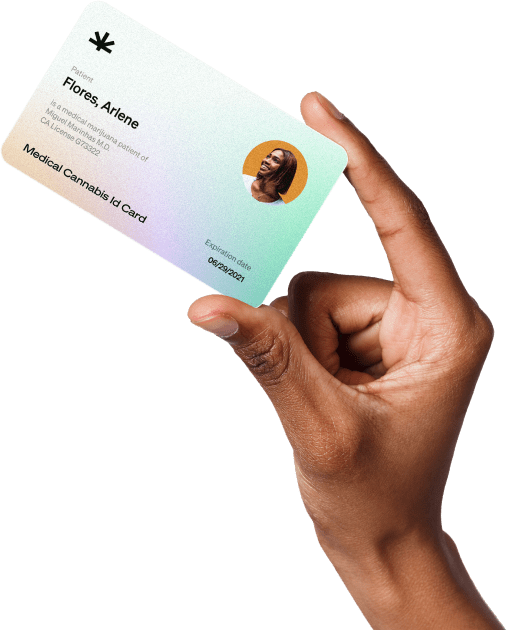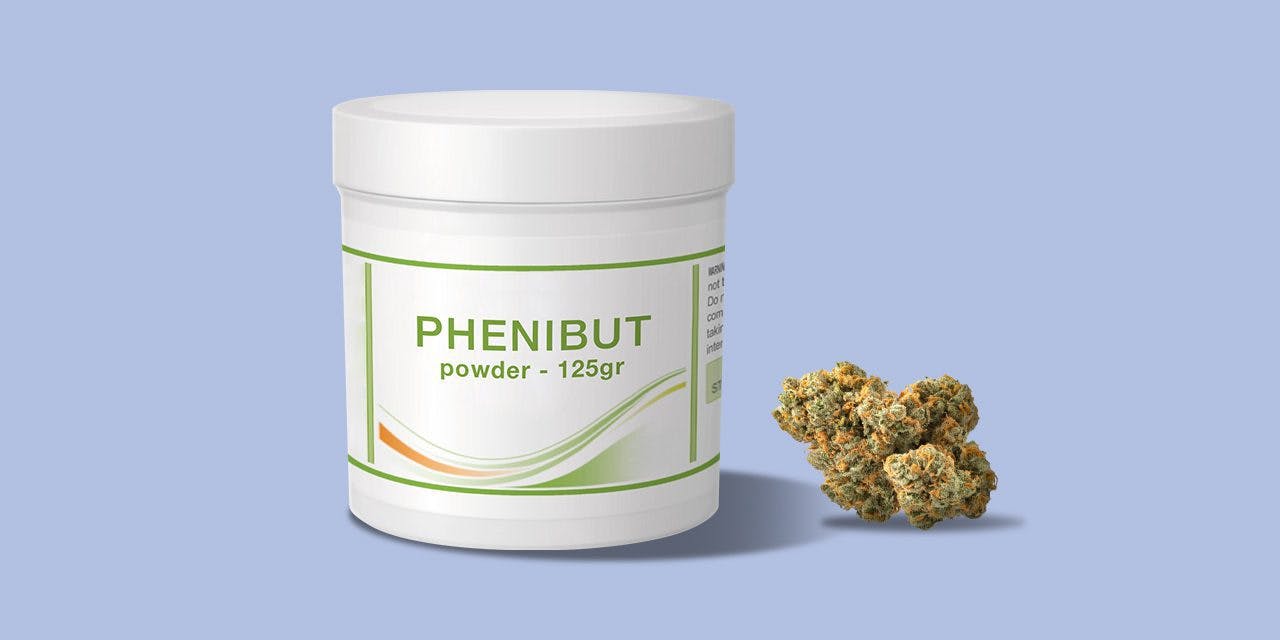Ozempic and Weed: Can You Mix the Two?

Article written by

Melissa CampbellSEO Content Writer
Content reviewed by

Dr. Lewis JasseyMedical Director - Pediatric Medicine
Ozempic (semaglutide) is a prescription medication that reduces blood sugar levels and lowers the risk of major cardiovascular events in adults with type 2 diabetes, high blood pressure, and high cholesterol.
Studies suggest cannabis can help those with diabetes and metabolic disorders like obesity, as well. While no research is available on the interaction of Ozempic and weed, emerging evidence suggests mixing the two is safe.
Get Your Medical Card
Connect with a licensed physician online in minutes.
What Is Ozempic?
Ozempic (semaglutide) is a prescription drug that reduces blood sugar levels for people with type 2 diabetes mellitus (also known as adult-onset diabetes and type 2 diabetes). It’s also prescribed to decrease the risk of major cardiovascular issues in adults with type 2 diabetes and heart disease.
Ozempic belongs to a new class of medications called glucagon-like peptide-receptor agonists (or GLP-1). GLP-1s such as Ozempic are useful for blood sugar control and cardiovascular support and have also been recognized for their efficacy as a weight loss drug.
Uses and How It Works
Ozempic is administered via a multi-dose pen that is injected once a week.
Along with a healthy diet and regular exercise, it is used to treat type 2 diabetes in adults and reduce the risk of adverse cardiac events — such as stroke, heart attack, and heart disease-related deaths — for those with diabetes and heart disease.
While it has not received FDA approval as a weight loss drug, Ozempic has been shown to support chronic weight management for those without diabetes, including children 12 years of age and older with obesity.
Semaglutide, the active ingredient found in Ozempic, belongs to a class of medications called glucagon-like peptide-1 receptor agonists (GLP-1). GLP-1 receptor agonist drugs work in several ways to support healthy blood sugar levels and mitigate major cardiovascular events.
By mimicking glucagon-like peptide-1, a natural gut hormone that is released into your bloodstream after eating, Ozempic helps to:
- Reduce blood sugar levels by blocking glucagon and increasing insulin production when glucose levels rise.
- Prevent the liver from producing excess glucose.
- Slow down digestion (i.e., gastroparesis), which can facilitate a lasting sense of fullness and prevent weight gain.
Potential Benefits and Risks of Mixing Cannabis and Ozempic
Ozempic is known to interact with various medications, but marijuana isn’t one of them. That said, prospective consumers should know the benefits and risks of marijuana and Ozempic.
Potential Benefits
Ongoing research highlights the beneficial effects of cannabis for those with type 2 diabetes and other weight-related conditions.
One study found that cannabis’s impact on metabolism and appetite may reduce insulin levels, while another trial associated marijuana use with lower fasting insulin levels in adults with obesity (compared to non-obese adults). Additional findings also suggest that cannabis-consuming participants had lower rates of obesity and diabetes than those who’d never used marijuana.
Evidence suggests that CBD and THCV (cannabinoids found in the marijuana plant) may be responsible for reducing blood sugar levels, preventing insulin resistance, and managing an optimal BMI. CBD and THCV may also help alleviate diabetic neuropathy (i.e., nerve pain).
Additionally, a growing body of anecdotal evidence speaks to the safety of combining cannabis and Ozempic.
While many consumers claim that cannabis counteracts the appetite suppressant effect of semaglutide, the consensus among dual users is that weed does not interfere with Ozempic’s efficacy, particularly as a weight loss drug. In addition, many who consume both claim that marijuana helps stave off common side effects of Ozempic, including nausea.
Potential Risks
Mixing cannabis with Ozempic may pose minimal risks, but neither substance is side-effect free.
Adverse drug reactions are highly individual and depend on factors such as age, current medication regimen, pre-existing health conditions, and drug sensitivities. As a potent GLP-1 receptor agonist, semaglutide has some potential side effects that users should be familiar with.
You should not use Ozempic if:
- You have a personal or family history of medullary thyroid carcinoma (thyroid cancer) or Multiple Endocrine Neoplasia syndrome type 2.
- You are allergic to its active ingredients.
- You’ve been diagnosed with Multiple Endocrine Neoplasia syndrome type 2.
Pregnant or breastfeeding people should also avoid medication containing semaglutide. Before starting Ozempic, share your complete medical history and any medications you take with your doctor to prevent serious side effects. The following is a list of mild side effects commonly associated with Ozempic:
- Nausea
- Vomiting
- Diarrhea
- Constipation
- Indigestion
- Dizziness
- Abdominal pain
- Fatigue
- Gas
- Acid reflux
- Dehydration
- Ozempic face (facial aging)
Ozempic is also associated with some rare but hazardous side effects, including:
- Gallbladder damage (gallstones, inflammation)
- Pancreatitis
- Kidney problems
- Changes in vision (particularly for those with a history of diabetic retinopathy)
- Boxed warning risk of medullary thyroid carcinoma (thyroid cancer)
Although it contains numerous medicinal properties, cannabis is commonly linked to the following side effects:
- Sleepiness or lethargy
- Hot and cold flashes
- Anxiety or paranoia
- “Cotton” or “dry” mouth (i.e., a lack of saliva)
- Extreme hunger pangs (the “munchies”)
- Dry, red eyes
- Dizziness and nausea
- Increased heart rate
- Sense of a loss of self; dissociation from the body
- Short-term memory loss
- Psychotic episodes (in rare cases)
Some consumers have reported minor side effects of mixing Ozempic and weed. A few dual users experienced dizziness after combining the two, while others noted an intensified cannabis high.
Many others expressed concerns that THC-induced munchies may cause weight gain, but fortunately, there are alternatives.
CBD is an excellent choice for those who rely on the therapeutic properties of cannabis for pain, sleep, depression, or anxiety. It is an effective, non-intoxicating substitute for THC-rich marijuana and is not known to trigger intense hunger.
The Bottom Line
Ozempic is an injectable medication used in conjunction with a balanced diet and regular exercise to treat type 2 diabetes. It is also an unofficial weight loss drug for people with obesity.
In addition, the medicinal properties of marijuana may be used to improve blood sugar levels and maintain a healthy body mass index. Together, cannabis and Ozempic can play a significant role in diabetes management.
Evidence suggests it’s safe to consume marijuana while taking Ozempic.
Still, it’s always best to tell your doctor about any medication you take — herbal or otherwise — before you begin Ozempic. Your healthcare provider can monitor you for side effects, offer safer alternatives, and help tailor your diabetes treatment plan to your needs.
Get Your Medical Card
Connect with a licensed physician online in minutes.



